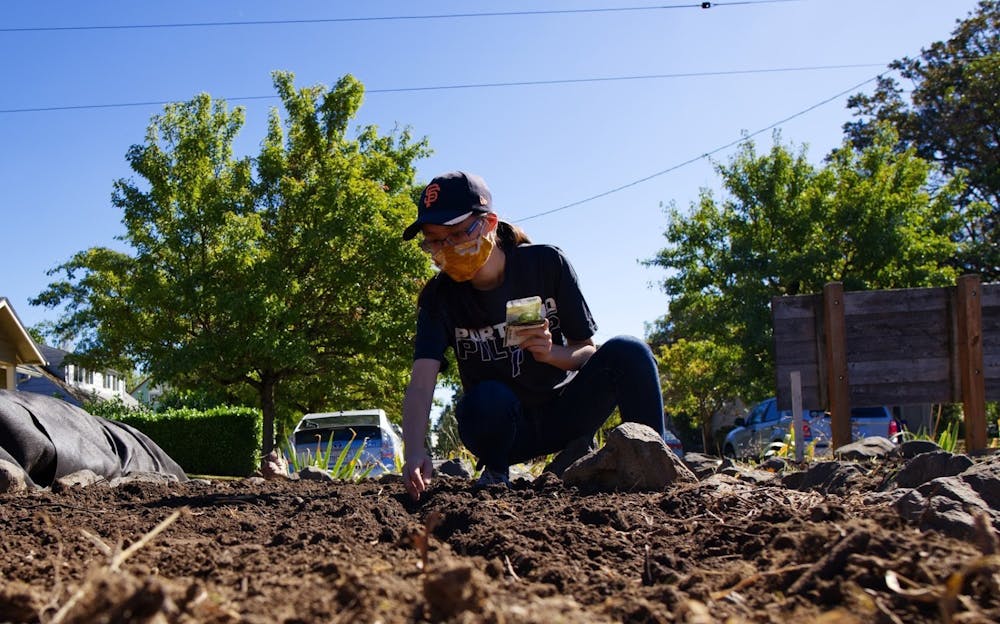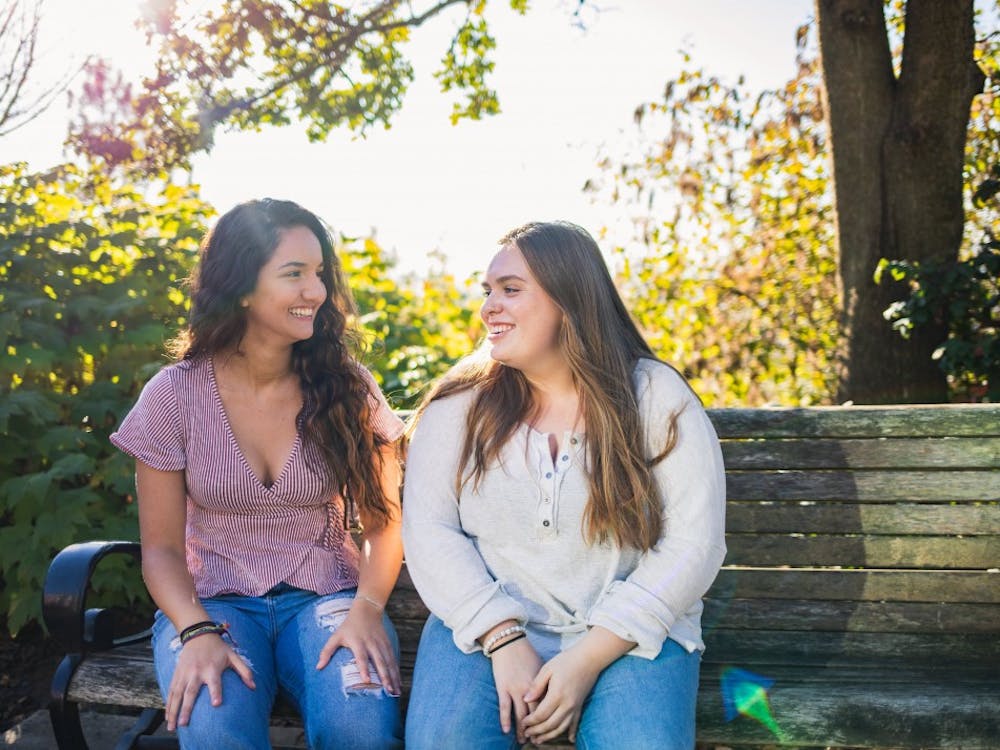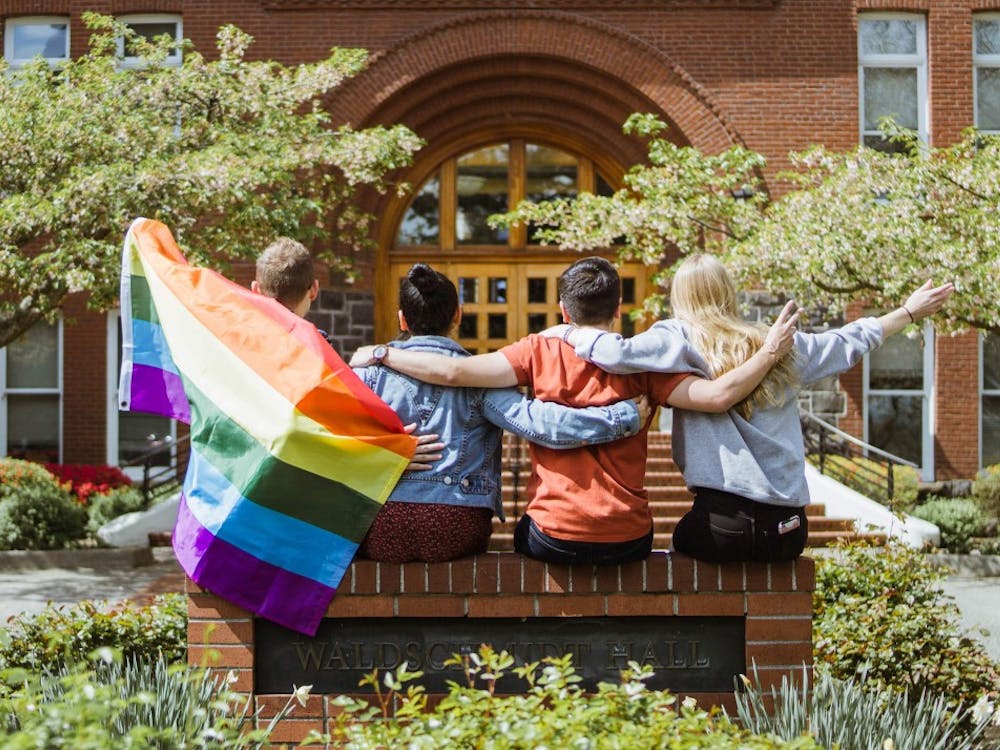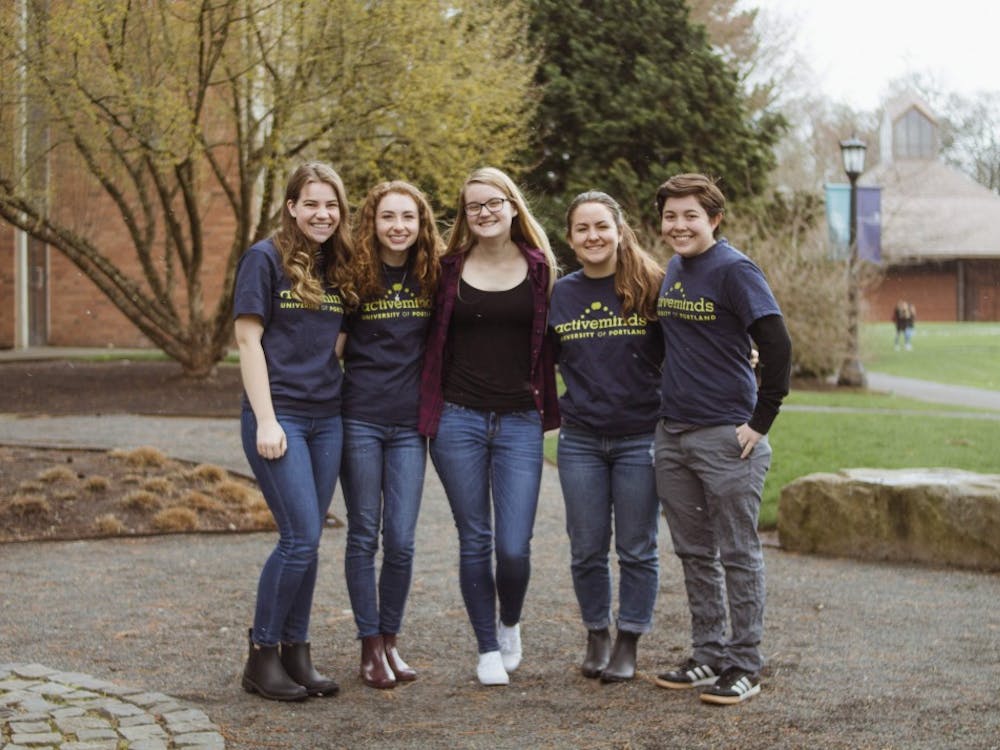On the edge of campus past Haggerty and Tyson Halls, a small orchard and garden overlook the stunning scenery of the Willamette River. Currently overflowing with tomatoes and squash, the Student Led Unity Garden (SLUG) is open to all community members.
Online school has left countless students feeling isolated from their communities. As a result, UP students are struggling to find a way to connect to their campus and their peers. COVID-19 prevents most UP clubs and organizations from meeting in person, but the SLUG club continues to meet outdoors on Saturday mornings from 10:30 a.m. to 12 p.m.

SLUG Garden's view makes for a worthy sunset and day spent in the sun.
SLUG is a great way for community members to get involved with UP during a time when staying connected may feel harder than ever. SLUG does more than provide an easy and local way to access fresh produce—it also teaches people about the importance of sustainable and ethical food sourcing.
“Sustainable eating is all about knowing where you get your food from and trying to reduce your meat intake,” Josie Hughes, SLUG’s treasurer, said.
Community gardens have provided an important answer to this question of food sustainability on a warming planet. Community gardening promotes the usage of organic, ethically grown, native produce and reduces the resources used in growing, packaging and shipping food grown in harmful monocultures.
When your fruits and vegetables are grown right down the block, you don’t have to worry about your carbon footprint from fossil fuels used in transportation. Growing produce on a smaller scale reduces the dangerous and harmful overuse and waste of pesticides and fertilizers found in monocultures. If nothing else, growing your own food is simply a healthier choice.
“Reforming our food systems is one of the most important tasks for this upcoming generation, because, as we're seeing, what we are doing now is not sustainable,” SLUG co-president Clara Lietz said. “Even though it might feel really small, I think being a part of this garden is a way to connect with something much bigger.”
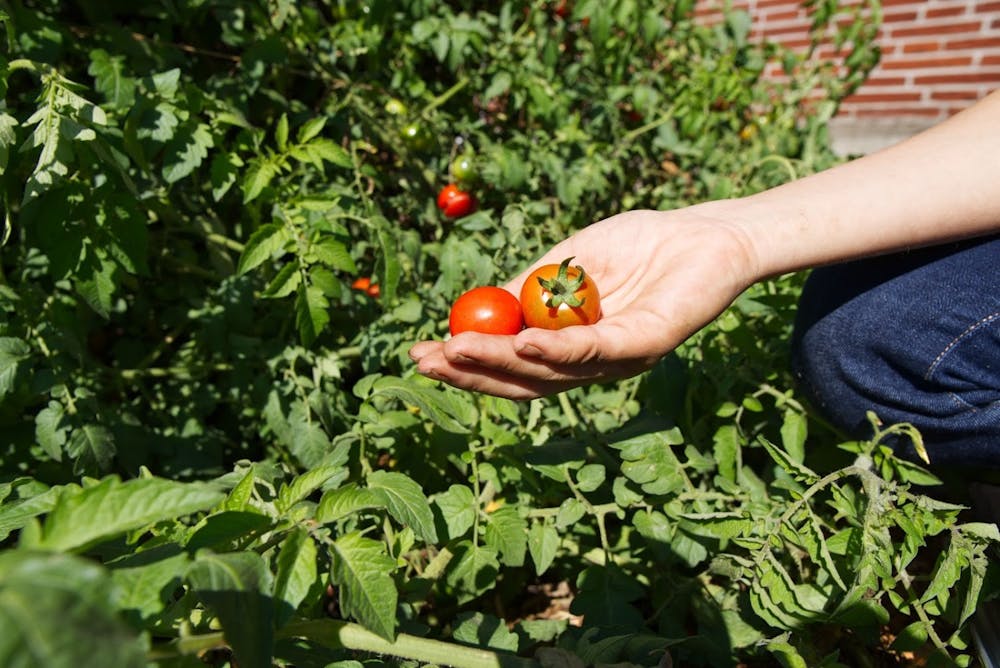
Newly picked tomatoes are ripe and ready to eat.
Community gardening is also a way to connect on a personal level with the food you eat, bringing about an awareness that has declined with the convenience of buying produce at the grocery store.
“There's just a real disconnect between how we get our food and where it comes from,” SLUG’s moderator, Tara Prestholdt said. “I think everyone who works with the SLUG garden has a better appreciation for what fresh food tastes like, and how hard it can be to get good tasting fresh food.”
According to Hughes, SLUG members hope that the club can not only grow in numbers, but expand across all grade levels , so that their long-term plans are enactable. Hughes encourages any local students to visit the SLUG garden, enjoy their produce, and help to maintain the garden beds. Lietz hopes the garden can be more than just a garden, and foster a community space as well.
“People might feel like they don't have enough applicable skills or experience with gardening to help, but I think that all we really look for is interest in engaging with the garden and an open mind to learn,” Lietz said.
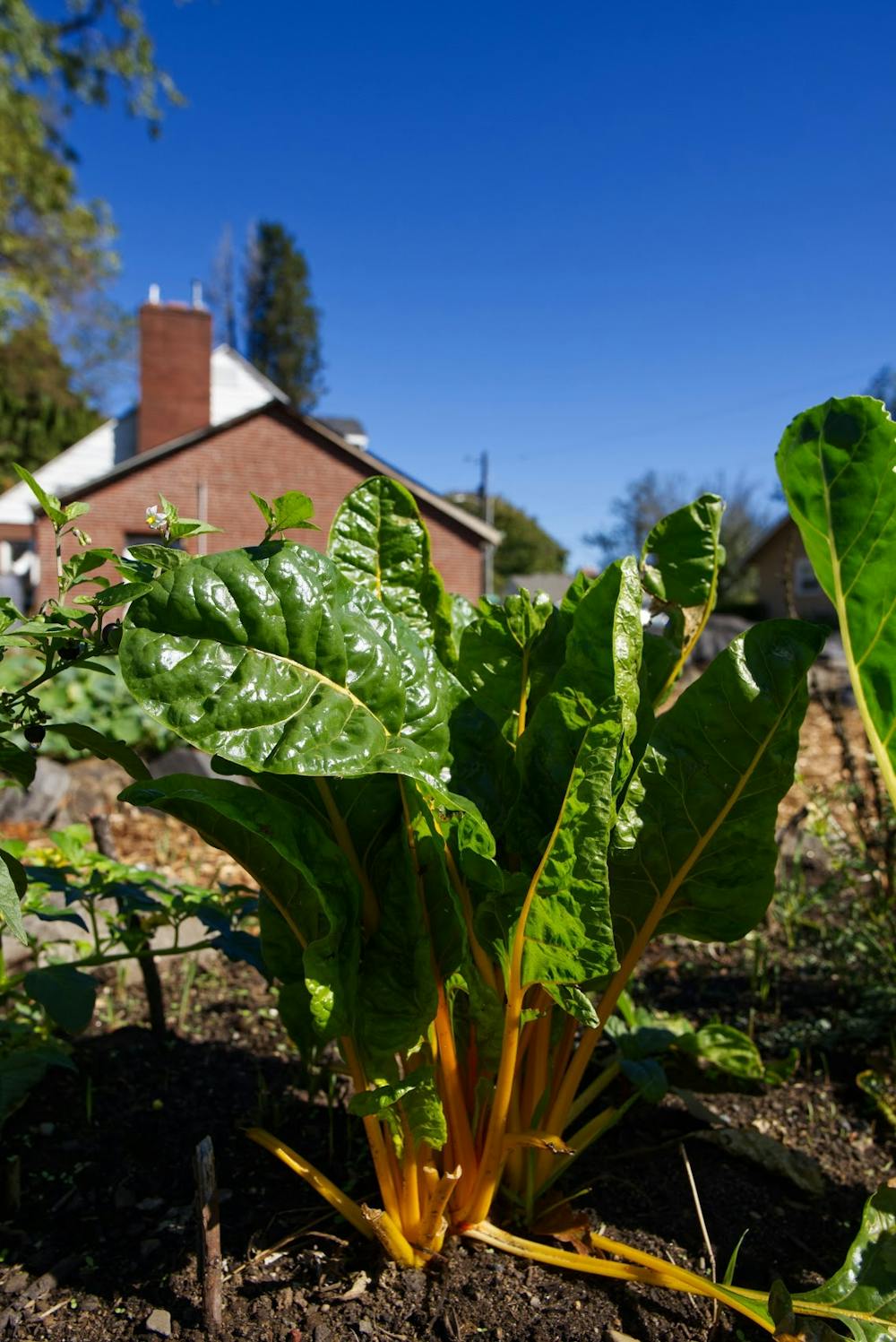
Yellow chard grows peacefully in the sun.
SLUG was started in 2006, and the garden was planted in 2007. Since then, SLUG has undergone countless harvests, multiple changes of leadership, and a complete redesign. According to Hughes, SLUG hopes to build a wooden trellis to hold the grapes on the edge of the garden. SLUG also has plans to implement drip irrigation, a more sustainable way to water the garden. In the fall and winter seasons, SLUG members plan to grow radishes, beets and pumpkins.
“This awfulness of 2020 has provided a great opportunity to be more connected with what's happening,” Prestholdt said. “Why not start right on our campus in one little corner with your bare hands on a beautiful rainy Portland day?”
To get involved with SLUG, students can follow the Instagram page @slugcommunitygarden, email slugproject@gmail.com, or join the club through Engage.
Sadie Wuertz is a reporter for The Beacon. She can be reached at wuertz22@up.edu.



